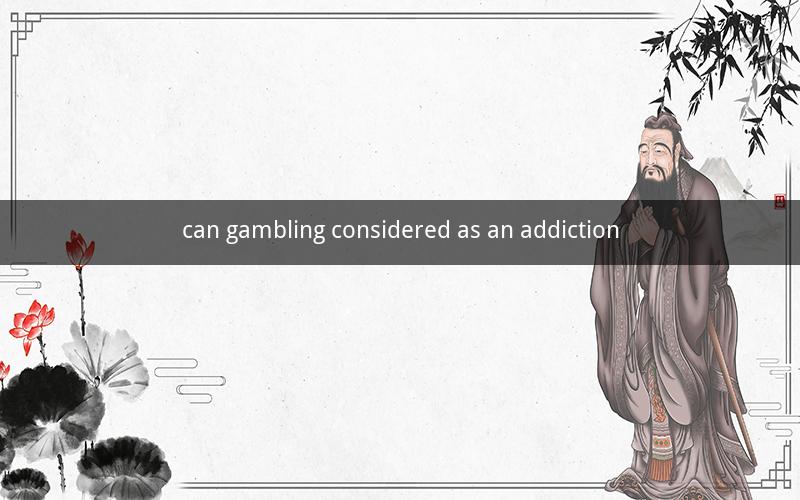
Contents
1. Understanding Gambling
2. The Concept of Addiction
3. Signs and Symptoms of Gambling Addiction
4. The Impact of Gambling Addiction
5. Psychological Factors Contributing to Gambling Addiction
6. Social and Economic Consequences
7. Treatment and Support for Gambling Addiction
8. Prevention Strategies
9. The Role of Technology in Gambling Addiction
10. Conclusion
1. Understanding Gambling
Gambling, a form of entertainment, involves risking money or something of value on an event with an uncertain outcome. It can take various forms, including casino games, sports betting, lottery, and online gambling. The appeal of gambling lies in the thrill of the unknown and the potential for winning big.
2. The Concept of Addiction
Addiction is a complex condition characterized by compulsive engagement in rewarding stimuli despite adverse consequences. It is often characterized by an inability to control behaviors, cravings, and a preoccupation with the substance or activity of choice.
3. Signs and Symptoms of Gambling Addiction
Gambling addiction, also known as pathological gambling, shares many characteristics with other addictions. Common signs and symptoms include:
- Inability to control gambling behavior
- Preoccupation with gambling, even when not engaging in it
- Repeated unsuccessful attempts to stop gambling
- Lying to hide gambling activities
- Risking more money than intended
- Borrowing money to finance gambling
- Neglecting responsibilities due to gambling
4. The Impact of Gambling Addiction
Gambling addiction can have severe consequences on an individual's life, affecting various aspects, including:
- Financial: Debts, bankruptcy, and loss of assets
- Social: Strained relationships, isolation, and loss of friends
- Psychological: Anxiety, depression, and mood swings
- Physical: Sleep deprivation, weight gain, and other health issues
5. Psychological Factors Contributing to Gambling Addiction
Several psychological factors can contribute to the development of gambling addiction, including:
- Impulse control disorders
- Low self-esteem
- Previous trauma or abuse
- Stress and anxiety
- The thrill of taking risks
6. Social and Economic Consequences
Gambling addiction can have significant social and economic consequences, affecting not only the individual but also their family, friends, and community. These consequences include:
- Increased crime rates due to theft and fraud
- Loss of community resources
- Increased demand for social services
- Reduced economic productivity
7. Treatment and Support for Gambling Addiction
Treatment for gambling addiction often involves a combination of therapy, support groups, and medication. Common treatment approaches include:
- Cognitive-behavioral therapy (CBT)
- Family therapy
- Support groups, such as Gamblers Anonymous
- Medication for co-occurring mental health disorders
8. Prevention Strategies
Preventing gambling addiction involves several strategies, including:
- Education about the risks of gambling
- Setting limits on gambling activities
- Building a strong support network
- Seeking help early if there are signs of problem gambling
9. The Role of Technology in Gambling Addiction
The rise of technology has made gambling more accessible than ever, contributing to the increase in gambling addiction cases. Factors such as:
- Online gambling platforms
- Mobile apps
- High-speed internet
- Social media advertising
Have all contributed to the ease of access and the potential for problem gambling.
10. Conclusion
Gambling addiction is a complex condition that can have severe consequences on an individual's life. Understanding the signs, seeking help, and implementing prevention strategies are crucial in addressing this issue. By recognizing the risks and taking proactive measures, individuals can mitigate the impact of gambling addiction and lead healthier, more fulfilling lives.
Questions and Answers
1. What is the primary difference between gambling and problem gambling?
- Problem gambling is characterized by an inability to control gambling behavior, leading to negative consequences in various aspects of life.
2. Can gambling addiction be treated effectively?
- Yes, gambling addiction can be treated effectively with a combination of therapy, support groups, and medication.
3. Are there any genetic factors that contribute to gambling addiction?
- Yes, some studies suggest that genetic factors may play a role in the development of gambling addiction.
4. Can someone who has never gambled before develop a gambling addiction?
- Yes, anyone can develop a gambling addiction, regardless of their previous experience with gambling.
5. How can I tell if someone I know has a gambling addiction?
- Look for signs such as preoccupation with gambling, lying about gambling activities, and neglecting responsibilities.
6. Are there any medications available to treat gambling addiction?
- Yes, some medications may be prescribed to treat co-occurring mental health disorders that contribute to gambling addiction.
7. Can online gambling be more addictive than traditional gambling?
- Yes, the convenience and accessibility of online gambling can contribute to a higher risk of addiction.
8. How can I help someone who is struggling with a gambling addiction?
- Encourage them to seek professional help, offer support, and help them set boundaries around gambling activities.
9. Can gambling addiction lead to criminal behavior?
- Yes, individuals with gambling addiction may engage in criminal behavior to fund their gambling habits.
10. What is the most effective way to prevent gambling addiction?
- Education about the risks of gambling, setting limits, and building a strong support network are effective prevention strategies.